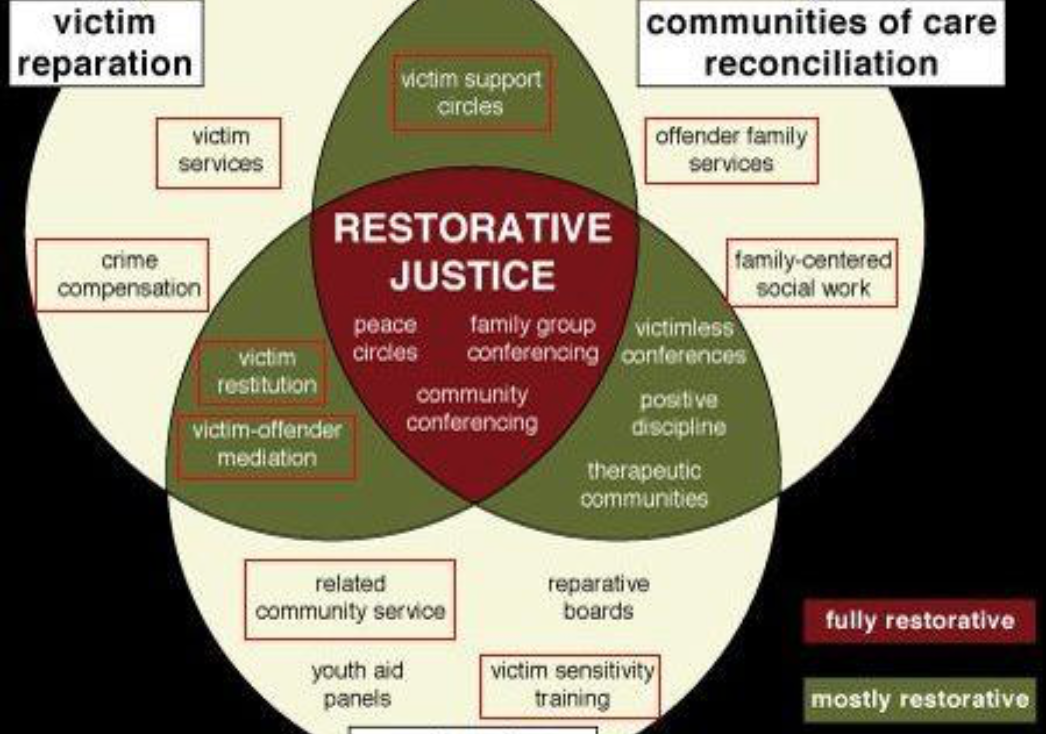9.10. Restorative Justice
David Carter
The process of restorative justice programs is often linked with community justice organizations and is normally carried out within the community. Therefore, RJ is discussed here in the community corrections section. Restorative justice is a community-based and trauma-informed practice used to build relationships, strengthen communities, encourage accountability, repair harm, and restore relationships when wrongdoings occur. As an intervention following wrongdoing, restorative justice works for the people who have caused harm, the victim(s), and the community members impacted. Working with a restorative justice facilitator, participants identify harms, needs, and obligations, then make a plan to repair the harm and put things as right as possible. This process, restorative justice conferencing, can also be called victim-offender dialogues. It is within this process that multiple items can occur. First, the victim can be heard within the scope of both the community and within the scope of the offense discussed. This provides the victim(s) an opportunity to express the impact on them, but also to understand what was happening from the perspective of the transgressor. At the same time, it allows the person committing the action to potentially take responsibility for the acts committed, directly to the victim(s) and to the community. This restorative process provides a level of healing that is often unique to the RJC. Pictured, are the different processes that can occur during the different types of dialogues within RJC.
Restorative Justice Processes

Restorative Justice Success
For over a quarter century, restorative justice has been demonstrated to show positive outcomes in accountability of harm and satisfaction in the restorative justice process for both offenders and victims. This is true for adult offenders, as well as juveniles, who go through the restorative justice process. Recently, there have been questions about whether there is a cognitive change that occurs in the thought process of the individuals completing a restorative justice program. There is a growing body of research that demonstrates that change in cognitive distortions may occur through the successful completion of restorative justice conferencing (RJC). This will be an area of increasing interest for practitioners, as restorative justice continues to be included in the toolkit of actions within community justice and community corrections.

